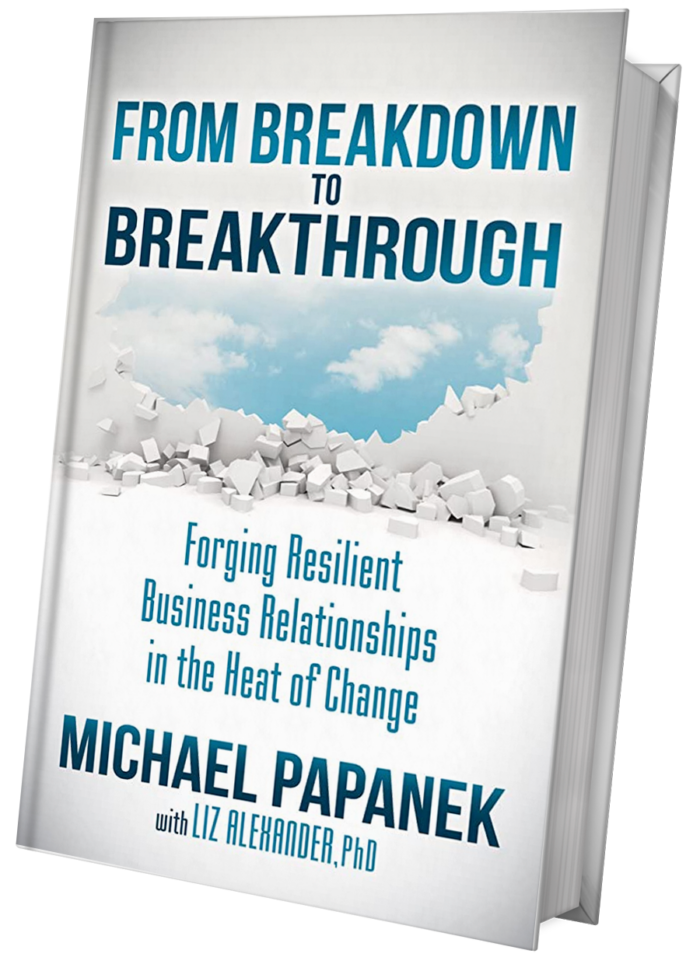A little nonsense, now and then, is cherished by the wisest men.” —
Roald Dahl, “Charlie and the Chocolate Factory”
Stress-relief benefits from a belly laugh*
Laughter’s health benefits are no joke. A good sense of humor can’t cure all ailments, but data are mounting about the positive things laughter can do. Moreover, if you are in a leadership role, others are watching your reactions to give them an idea of how they might react. A little humor, done in the right way, can help everyone reduce stress and increase resilience during change.
Short-term benefits
A good laugh has great short-term effects. When you start to laugh, it doesn’t just lighten your load mentally; it actually induces physical changes in your body and can impact the whole team. Sharing a laugh can:
- Build resilient relationships: When you share a laugh with others it brings you together and can make harder issues easier to deal with. We are thinking of this bond when we say “in on the joke.”
- Stimulate your organs. Laughter enhances your intake of oxygen-rich air, stimulates your heart, lungs and muscles, and increases the endorphins that are released by your brain.
- Activate and relieve your stress response. A rollicking laugh fires up and then cools down your stress response and increases your heart rate and blood pressure. The result? A good, relaxed feeling.
- Soothe tension and stomachaches. Laughter can also ease digestion and stimulate circulation, which helps reduce some of the physical symptoms of stress.
Long-term effects
Laughter isn’t just a quick pick-me-up, though. It’s also good for you over the long haul. Laughter may:
- Improve your immune system. Negative thoughts manifest into chemical reactions that can impact your body by bringing more stress into your system and decreasing your immunity. In contrast, positive thoughts actually release neuropeptides that help fight stress and potentially more-serious illnesses.
- Relieve pain. Laughter may ease pain by causing the body to produce its own natural painkillers.
- Increase personal satisfaction. Laughter can also make difficult situations a little bit easier. If we can laugh at or about something, it becomes less dramatic.
Are you afraid you have an underdeveloped — or nonexistent — funny bone?
Developing or refining your own particular sense of humor may be easier than you think.
- Put humor on your schedule. Find a few simple items, such as photos or comic strips, that elicit a chuckle from you or others. Then hang them at home, in your office or even on the visor of your car.
- Laugh and the world laughs with you. Find a way to laugh about your own situations and watch your stress begin to fade away. Remember: never laugh at someone else.
- Think positive. Look for the positive or the humorous in every situation and surround yourself with others who do the same.
- Knock-knock. Browse through your local bookstore or library’s selection of joke books and get a few rib ticklers in your repertoire that you can share with friends. The internet of course has 1000’s of humor sites.
- Know what isn’t funny. Never laugh at the expense of others. Some forms of humor aren’t appropriate. Some issues are too sensitive or not ‘ready’ for humor (comics say “too soon?”). Use your best judgment to discern a good joke from a bad, or hurtful, one. When in doubt, make a joke about yourself!
Laughter is the best medicine
Go ahead and give it a try. Turn the corners of your mouth up into a smile and then give a laugh, even if it feels a little forced. Once you’ve had your hearty chuckle, take stock of how you’re feeling. Are your muscles a little less tense? Do you feel more relaxed or buoyant? That’s the natural wonder of laughing at work.
Michael Papanek
March 16, 2020
*Adapted from materials at mayoclinic.com and webme.com







